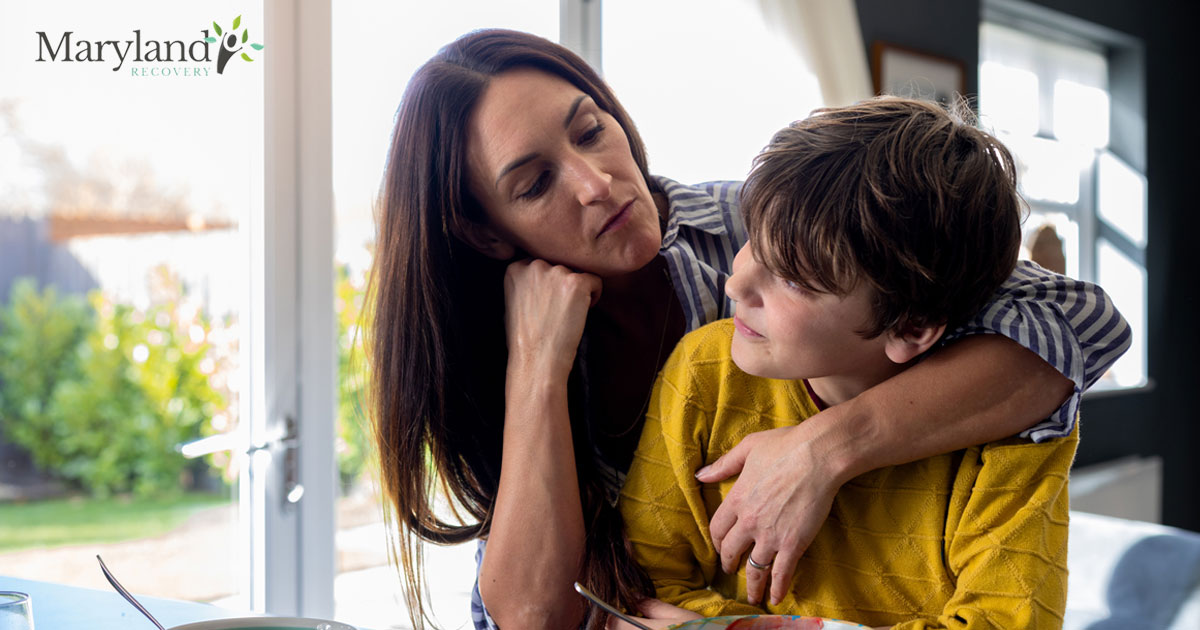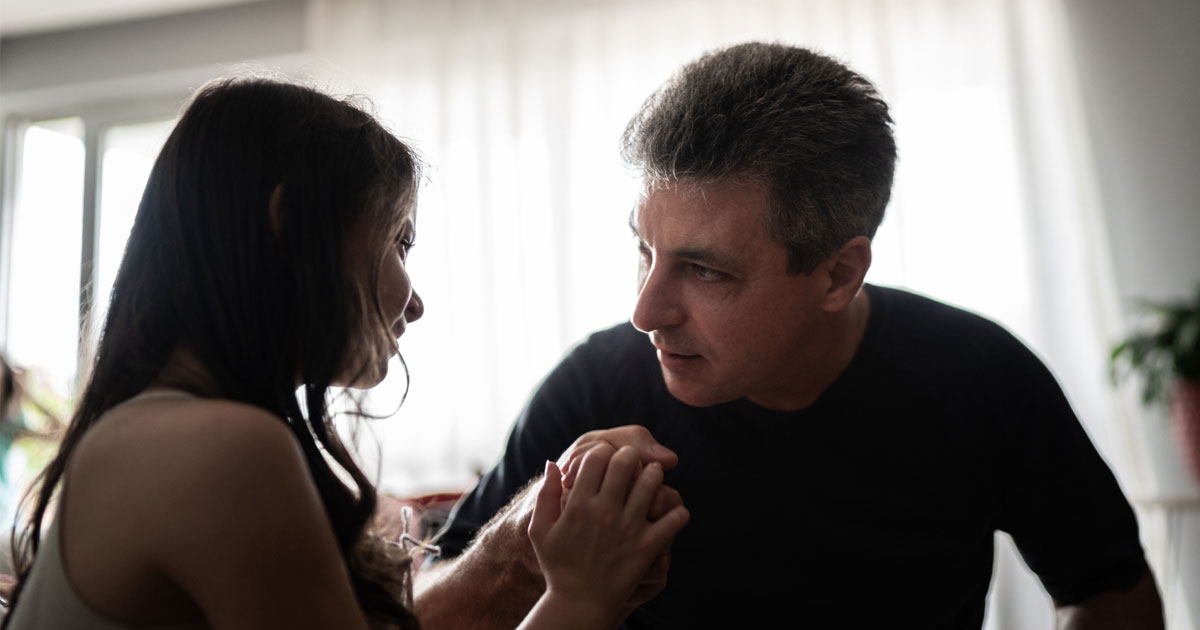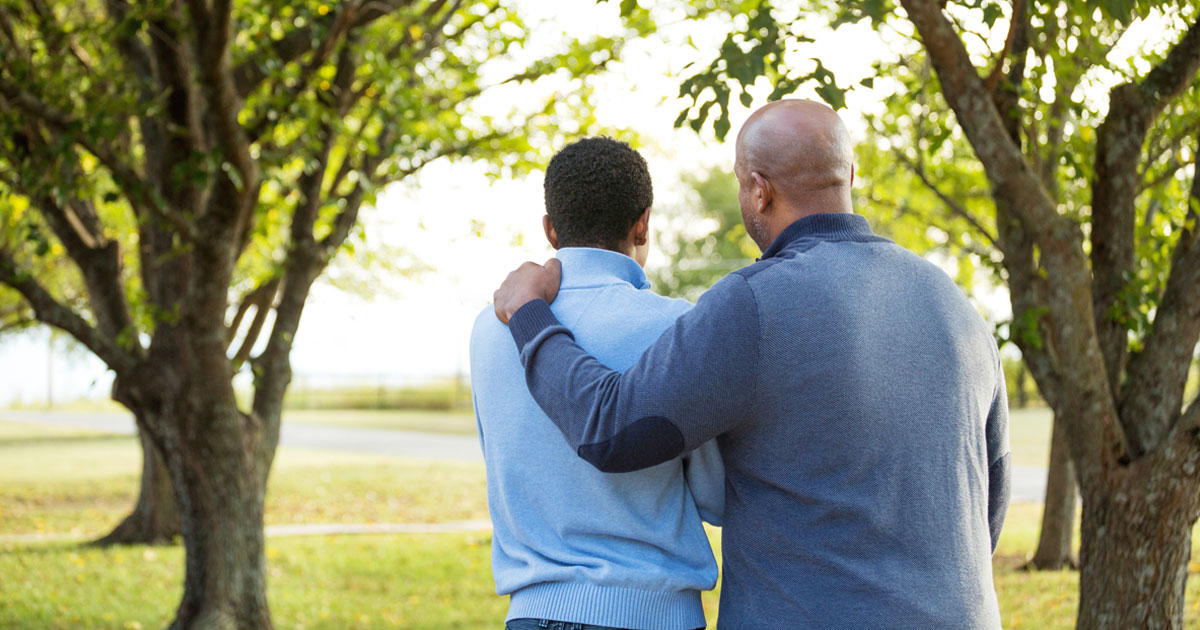
Choosing to begin treatment for a substance use disorder is a significant first step toward recovery. This isn’t an easy decision to make, but seeking treatment can help you establish a new, healthy, positive way of life. If you have children, the next important step is to help prepare them for what is ahead.
As you begin to consider your next steps, remember that you are not alone; many parents have made the choice to take time away from home to come back as a healthier, improved person in recovery. With that in mind, If you’ve made the decision to seek treatment but are unsure how to approach the subject with your children, we’ve created this brief guide. With the right tips and planning, speaking to your kids about addiction treatment can be a rewarding and eye-opening experience.
What Are Your Responsibilities As a Parent Before Going to Rehab?
As a parent, your children are your number one priority. However, substance use disorder can drastically alter your relationship with your partner or your child’s other parent as well as your children, and it can leave you wondering how to navigate both as you approach recovery. As a parent, it is valuable to understand your direct responsibilities, and preparing your children should be a top priority.
In general, substance use disorder can skew your sense of responsibility. Depending on the severity of your addiction, you may have struggled with not only caring for your child but also caring for yourself. Substance use can make simple things such as personal hygiene, healthy eating, and maintaining a routine almost impossible, and children are more intuitive than we give them credit for. Even if you don’t believe your addiction has affected your children, going to rehab not only helps you, but it helps your children as well.
Know that treatment is one of the most effective ways to create the true change that can lead to long-term recovery. For people with substance use disorder, treatment provides a true break from the pressures and triggers of daily life as well as a sense of structure and opportunities to reflect, grow, and heal.

Before rehab, it is your responsibility to prepare your child, and one of your first tasks is explaining this journey and its purpose. As mentioned, it’s likely that substance use disorder has already impacted the relationship you have with your kids. Whether you previously had a strained relationship or substance use has caused you to be more absent than you would like to admit, there is a chance your kids may already feel they have been emotionally or physically ignored. That’s why it is so important to make it clear that seeking treatment is much different than experiencing SUD; the ultimate goal is to become stronger.
If you share responsibilities with a partner or your child’s other parent, have an open, honest conversation about how you’ll navigate your child’s care together while you are receiving treatment. If you are a single parent, you’ll need to decide who will share responsibility. It’s important your children are able to maintain their current routine and structure as much as possible, and you’ll need to determine how they’ll get to school, meet with friends, and participate in extracurricular activities.
Why Have the Conversation?
Discussing substance use is rarely easy, and it can be tempting to avoid having a conversation with your children in favor of providing another excuse. Still, your children deserve to understand what is happening in your life. You don’t have to share all the details, and it’s important to keep the discussion age appropriate. In general, however, being honest and upfront gives you a chance to acknowledge that you haven’t been the best you. The conversation also gives your child the opportunity to express how your substance use disorder has impacted their life.
This discussion is a crucial time to provide reassurance. Without this conversation, your children can be left confused, hurt, and even frightened. To combat these emotions, it’s important to mention that this time will provide you with the means to become closer than ever before. Having this conversation can seem like the hardest step you’ve had to take yet, but it is essential for preparing your children for what is ahead.
Tips for Talking to Your Kids
Above all else, take some time to plan what you want to say as you talk to your kids about going to rehab. Feeling ready for the conversation and anticipating the emotions and questions you may encounter helps ensure you can remain as focused, calm, and open as possible. These tips can help you decide what to say and enter the conversation with a sense of purpose and a feeling of confidence.
Consider the Timing of the Conversation
Timing can make a significant difference in the overall outcome of a conversation with your kids about addiction treatment. First, it is often best to wait to have the conversation until you are able to provide as many concrete details as possible. For example, consider mentioning important dates that may work as milestones.
In addition, consider the time of day and the setting of your conversation. You’ll want to make the discussion a clearly defined, important conversation between the two of you, but also choose a spot where your child is comfortable and relaxed. It is best to choose a quiet, comfortable setting free of distractions like the TV and interruptions from others. The right setting can help your children feel safe to be open and responsive to what you have to say.

Keep It Age-Appropriate
Substance use disorder and recovery can be difficult concepts for even adults to understand. As a result, it’s important to narrow your focus to a level where your children can comprehend what you want them to understand. Be simple and direct; you do not need to go into extensive detail when it comes to your addiction.
You’ll want to consider your child’s age and level of maturity to gauge how much information is necessary. Depending on the age of your child, you may want to compare addiction to something they understand, like the urge to overindulge in unhealthy things that feel good at first. Like junk food, for example, your substance of choice became too tempting and now endangers your health. Older kids can understand that now your body feels like it needs the substance to go on, which is making you sick – and you need help to stop that from happening.
Be Honest
While you want to keep your conversation age-appropriate, it’s important to keep it honest. Misleading kids about what rehab is and what you’ll do there can create a sense of shame and secrecy around addiction and recovery. Since you’ll be in recovery for the rest of your life, it’s important to establish honesty now. Remind them that this is a good thing, and you are doing it because you love them and want to be the best parent possible.
Staying away from secrecy and shame regarding addiction treatment is crucial throughout the rest of your recovery journey. While it may be tempting to minimize the situation so your children do not think any less of you, it is likely your child is aware something is different about you. Even if you try to hide your addiction, children, even young ones, are much more perceptive than you realize.
Feelings of shame and guilt can leave you afraid to be vulnerable and honest during this conversation and can sow seeds of mistrust that will remain. Making it clear that your conversation will be a safe space where you are going to be open about your issues can set the stage for how you and your child communicate moving forward. Owning up to what’s happening and what you are going to do about it can help your children see you in a new, positive light when you return in the next stage of your journey to health and recovery.
Explain Rehab and Treatment as Succinctly as Possible
Do what you can to describe the center you are going to and what goes on there. This helps to provide an understanding that you are going somewhere that will be safe and comfortable. Take the time to explain that you will be working with doctors and therapists who can help you get better and learning from other people who are there to get help just like you. If possible, show your kids pictures or information from the website of the center, and describe some of the different activities you’ll be participating in. This all helps to create an open, safe place where your child can ask you questions.
Assure Them It Is Not Their Fault
For individuals struggling with addiction, stress and other family life situations may be a serious trigger. However, it is important to reassure your kids that everyone experiences stress in multiple areas of their lives. They did not cause your substance use disorder, nor can they control or cure it.
Unfortunately, some children find fault in themselves and may feel responsible for their parent’s substance use. As a parent, it is your responsibility to reassure them that you alone are responsible for all things related to your substance use disorder and the medical conditions it has caused. Take ownership of the situation and apologize for any pain this situation may have caused in their life.
Ask for Feedback and Questions
As you’re giving your child the necessary information, ask open-ended questions to engage your child in a two-way conversation. The ability to ask their own questions can encourage your kids to provide feedback so you’ll know what they are thinking and feeling as the conversation progresses. Answering their questions also ensures they’ll have a better understanding of what will happen when you go to rehab. Be sure to check in on their emotions to show that you value what they have to say and how they feel about the process.

Accept Their Reactions
Depending on the age of your children, your relationship with them, and the circumstances in your household, the way they react to your discussion about seeking treatment can vary drastically. Your kids could react with enthusiasm that you are finally seeking help, they could be angry that it has taken you so long, or they may just accept what you are saying without much reaction at all. Be prepared to handle some tears and provide guidance through confusion, but also be prepared to be met with skepticism, especially if you have attempted recovery before.
End on a Positive Note
It is likely that this conversation will have its ups and downs. Emotions are often at an all-time high, and depending on the age of your child, it can be difficult to ensure they understand what is happening. Whatever course the conversation does take, try to end on a positive note. Provide reassurance of hope and healing. Let them know that you love them and that you are going to work hard so you can be happy, healthy, and prepared to be the best parent possible.
Find Support at Maryland Recovery
Deciding how to tell your children you’re going to drug rehab can seem overwhelming, but it’s important to remember that no matter how old your children are, you should be as open and honest with them as possible. It may be hard to accept, but odds are they have some sort of understanding of your substance use disorder, even if they are very young. While they may not fully understand the complexity of the situation, the more you can prepare them for what’s ahead, the easier the transition to live in recovery will be for your family.
In 1999, Maryland Recovery introduced a distinctive approach to addiction treatment in Harford County, Maryland. Our comprehensive services began with the provision of affordable recovery homes to individuals transitioning from a treatment program, who found themselves lacking shelter and resources. Over time, our dedication has grown, and we now proudly extend our support to clients nationwide. Our affordable drug and alcohol treatment programs are designed to guide individuals in overcoming drug and alcohol abuse, ensuring their journey to recovery is successful.

A solution focused therapist with over a decade in the helping services, I am attuned to the broad expanse of holistic recovery. My mission is inspired by the work of Joseph Campbell, Dr. Wayne Dyer, and Fr. Joseph Martin. I am well versed in the specific needs of the recovery community and am trained in EMDR.








